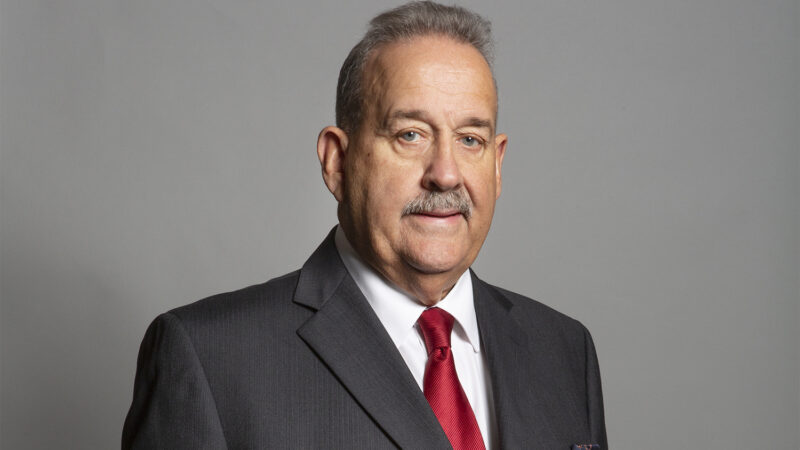
Nigel Farage is back. The vital fight against climate breakdown is the latest target in his never-ending culture war. The commodities broker turned “man of the people” is demanding a referendum on the UK’s commitment to achieving net zero emissions by 2050.
His opposition to the government’s meagre progress on the climate is backed by a coterie of right-wing Tory backbenchers. Chief amongst them is Net Zero Scrutiny Group chair Steve Baker. Despite having taken £5,000 from Tory donor and climate sceptic Neil Record, Baker insists climate change is real – he’s just not prepared to do anything about it.
Lee Anderson, the MP for Ashfield, has called for a U-turn on the 2019 moratorium on fracking. His campaign is drawing support not just from the Tory fringes, but in cabinet, too. On March 5th, the Business Secretary wrote in the Mail on Sunday that “those calling for [a return to fracking] misunderstand the situation we find ourselves in”. Yet by the 9th, he was telling MPs that the government is “open to the idea”.
It matters little to these net zero “sceptics” that the energy crisis has nothing whatsoever to do with environmental policies. In fact, had David Cameron not decided to “cut the green crap” in 2013 – derailing the national effort to insulate Britain’s homes – household energy bills would be £2.5bn cheaper today. Nor do they care that the resumption of commercial fracking would come ten years too late for people struggling to pay their bills here and now. For the Tory right, this debate is about ideology and lining the bottomless pockets of their friends and donors in the fossil fuel industry.
This century will be defined by the climate crisis. The most recent report of the Intergovernmental Panel on Climate Change (IPCC) made clear that the scale of the challenge is greater than we ever thought. Time is fast running out.
But it’s easy to understand why some hardworking people in my constituency may not see climate change as the immediate priority when they’re confronted by the urgent struggle of putting food on the table and coins in the meter. The potential for the siren calls of these “sceptics” to resonate amongst a public desperate for anything to help them through the worst cost of living crisis in a generation is clearly a risk.
Thankfully, polling suggests that there’s still broad popular support for the action needed to avert climate catastrophe. But as energy bills soar – by as much as 54% in April – we must prepare for a populist assault on our hard-won progress on the climate. Our opponents have plenty of cash, a well-oiled campaign machinery, and friendly faces in the pliant media. They know how to cynically exploit the legitimate fears of ordinary people.
It falls to the Labour Party to defend the commitments our country made in Glasgow in November, and to argue for more action to decarbonise our economy. We must be champions of environmental, as well as social, justice.
While ministers spout platitudes from the despatch box, Ed Miliband has developed a comprehensive package of measures to slash energy bills with a windfall tax on the profits of the fossil fuel giants, kickstart an “energy efficiency revolution” with a mass retrofit programme to insulate 19 million homes, and radically expand renewables capacity.
The breadth of vision and experience that Miliband brings stands in stark contrast to his opposite number on the government benches. But if we’re to decisively win the argument – and secure a greener future for future generations – we need to take one further decisive step in our response to the energy crisis.
Public ownership must be but back on the agenda. While six million households are about to be plunged into fuel poverty, the fossil fuel giants are recording unprecedented profits. Harbour Energy, the biggest oil and gas producer in the UK’s North Sea, expects to generate more than a billion pounds in free cash flow – even after paying tax and £150m in dividends.
If this wealth was put to public good, instead of lining the pockets of private shareholders, we could turbo-charge a revolution in British renewables and dramatically cut costs to consumers. And a publicly owned renewable energy company could lead the way to net zero, pioneering technological innovation in the sector while bringing highly skilled jobs to communities like Birkenhead.
Last but not least, the UK is one of just two countries in Europe with a privatised transmission grid. Energy transmission is a natural monopoly, meaning that consumers have no choice about who supplies their homes. But by bringing transmission networks back into public hands, we would save £3.7bn each year. The future must be green – and publicly owned.




More from LabourList
‘Welfare reforms still mean a climate of fear. Changes are too little, too late’
Welfare bill: Which MPs are still voting against reforms?
‘The tap end is getting hotter – and Welsh Labour might get burned’